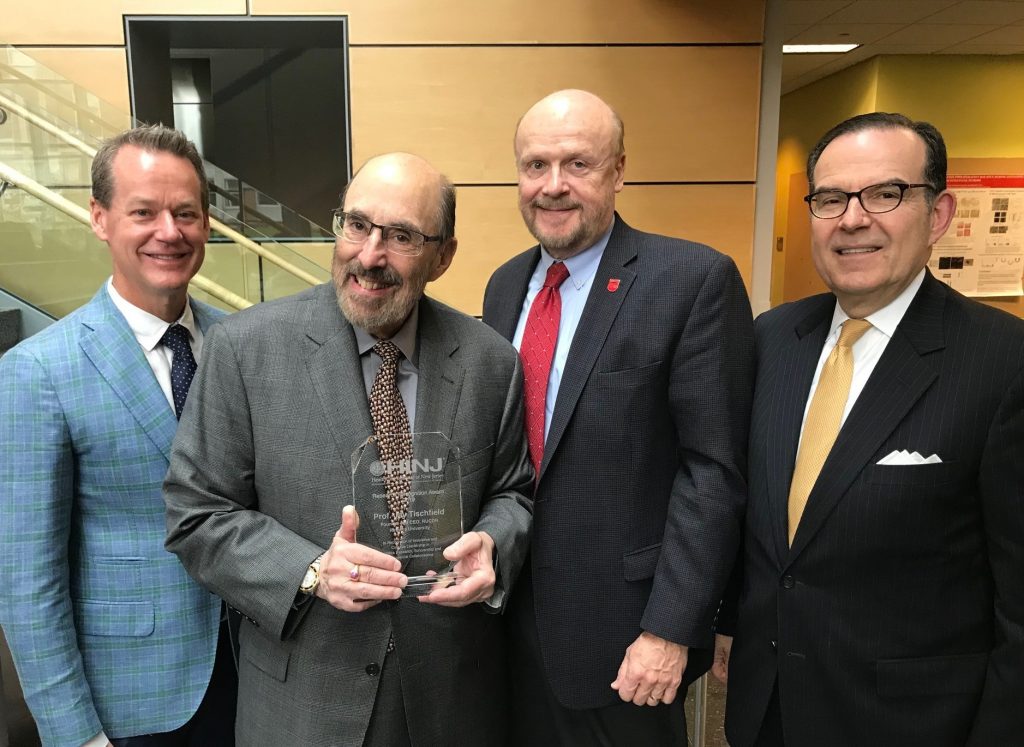HINJ honored Prof. Jay A. Tischfield of Rutgers University–New Brunswick today (Dec. 9, 2019) “in recognition of innovative and creative leadership in genetics research, scholarship and commercial collaborations.” Tischfield, who is CEO, founder and scientific director of RUCDR Infinite Biologics and the Duncan and Nancy MacMillan Distinguished Professor of Genetics at Rutgers, received the 2019 HINJ Research Recognition Award.

“Prof. Tischfield is an influential and widely published scientist, as well as a pioneer in creating a continuously expanding biorepository with sample analysis services that are tremendously valuable to both academic and industry researchers worldwide,” said Dean J. Paranicas, HINJ President and Chief Executive Officer. “RUCDR has worked with all of the world’s top 10 biopharmaceutical companies, among them numerous HINJ-member companies.”
A Founding Fellow of the American College of Medical Genetics, Tischfield was elected a Fellow of the American Association for the Advancement of Science in 2008. He is among the top five percent of National Institutes of Health (NIH)-funded researchers, with more than $250 million in total funding over 35 years.
Today, along with its state-of-the-art facilities, RUCDR has more than 200 employees, including staff with the Bioprocessing Solutions Alliance, a joint venture that has extended the Rutgers operation’s reach worldwide.
Tischfield was recognized by HINJ Board of Trustees Chair Alex Kelly, who is Executive Vice President, Corporate Affairs, Allergan, and Paranicas during an event that began a celebration of the 15th anniversary of the New Jersey Center for Tourette Syndrome & Associated Disorders (NJCTS). In 2007, NJCTS and RUCDR Infinite Biologics established the NJCTS Cell & DNA Sharing Repository as a resource for sharing clinical and genetic data. Four years into the pilot, the National Institute of Mental Health (NIMH) funded the repository’s expansion through grants of $10 million to date.
